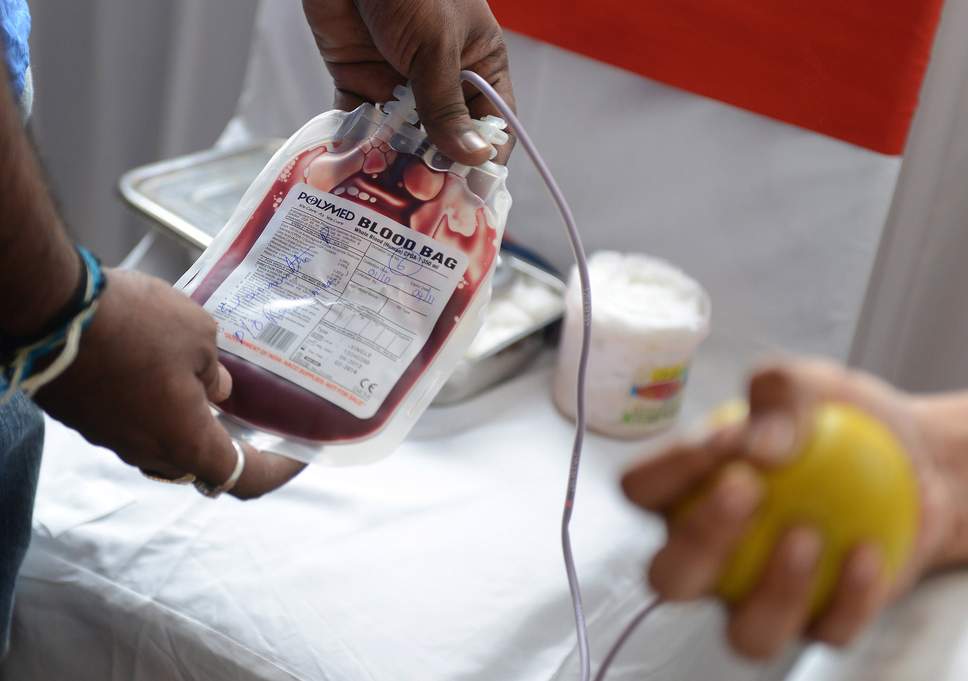Nigeria requires a minimum of 1.8 million units of blood per year to meet the blood transfusion needs of its citizens, according to Professor Musa Muhibi, a professor of Haematology at the Edo State University. Professor Muhibi made this known while delivering the 7th Inaugural lecture series of the University titled “The Cycle in Blood Safety: Being Efficient, Selfish and Effectively Generous”.
Speaking at the event, Professor Muhibi revealed that the rate of blood donation is low, with only 10 percent of blood supply coming from voluntary donors. He further stated that the majority of blood donations come from families of patients, some of whom are not adequately screened for infections and other health conditions.
“Unfortunately, the country has one of the lowest voluntary blood donation rates globally, with only 10 percent of blood supply coming from voluntary donors. 60 percent comes from family replacement donors, while 30 per cent comes from paid blood donors. Therefore, strategies aimed at promoting voluntary blood donation are needed to increase the availability of safe blood and meet the high demand for blood transfusion,” he said.
Nigeria has a high demand for blood transfusion due to its high maternal mortality rates and increased prevalence of diseases such as malaria that require blood transfusion. Blood transfusion is a crucial aspect of healthcare services, particularly in emergencies and during medical procedures like surgeries.
In his lecture, Professor Muhibi highlighted factors affecting voluntary blood donation such as fear of needles, lack of trust in the healthcare system, inadequate awareness, and cultural and religious beliefs. He called for public awareness and education campaigns on the importance of blood donation and the benefits of voluntary donation.
“Strategies aimed at promoting voluntary blood donation are crucial to increase the availability of safe blood and meet the high demand for blood transfusion,” Professor Muhibi said.
Earlier in the event, the Vice Chancellor of the institution, Prof. Emmanuel Aluyor, commended the Medical Laboratory Science Department of the university for the second inaugural lecture this year and also for having a 100 percent pass rate in their professional examinations. He also emphasized the importance of promoting voluntary blood donation and a sustainable blood transfusion system in the country.
“Promoting voluntary blood donation is crucial to meeting the high demand for blood transfusion. This requires public awareness campaigns and education on the importance of blood donation and the benefits of voluntary donation,” Prof. Aluyor said.
The World Health Organization recommends that a country’s blood donation rate should be at least 1 percent of its population, which translates to about 2 million units of blood for Nigeria. However, the country currently falls far short of this target, with only about 10 percent of blood supply coming from voluntary donors.
According to Professor Muhibi, the country’s blood transfusion system is also inefficient due to inadequate screening of blood donors and lack of blood component therapy. He recommended that the government invest more in blood screening technologies and blood component therapy to improve the quality of blood transfusions and save more lives.
“Blood screening technologies should be made more widely available to reduce the risks of infections and other health conditions associated with blood transfusions. Blood component therapy should also be widely available to ensure that patients receive only the components of blood they need, which will reduce the risk of transfusion-related complications,” he said.
The government has recognized the need to improve the country’s blood transfusion system and has taken steps to promote voluntary blood donation. In 2005, the National Blood Transfusion Service (NBTS) was established to oversee the collection, screening, and distribution of blood and blood products.



